Copyright 2020 - 2021 irantour.tours all right reserved
Designed by Behsazanhost
Social Etiquette in Iran
Social Etiquette in Iran
Although the Iranian people are one of the warmest, most intimate, and most hospitable people in the world, they are also formal. When you are going on a trip to Iran it is a good idea to have an understanding of socially acceptable gestures, expressions, and behaviors. Here we introduce you to some Iranian social etiquette and business. The golden rule of socially acceptable behavior in Iran is to support your words with appropriate gestures and behavior. For example, it is good practice to offer a portion of what you are about to eat to anyone close to you, even if they show no interest. If the behavior of the people in Iran were carefully observed, such behavior stands out clearly even among the smallest children.
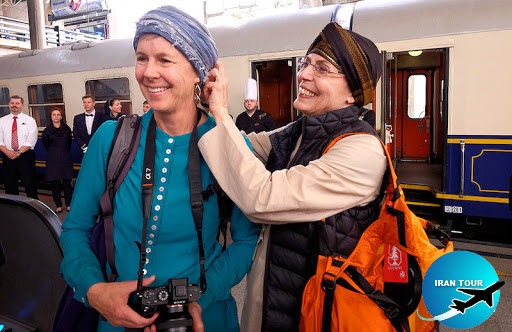 |
Needless to say, rejecting such an offer is polite, but the offer she/he makes will be sensitive if the other person shows even the slightest hint of interest and continues if she does. You will be served with the warmest affection and the amount of food and drink when invited to a Persian home. The Iranian politeness encourages that guests bring along at least a small gift for the host. They usually carry a small thing, a box of sweets, Fresh flowers, souvenirs, and pastries as gifts. Even if the hosts display some embarrassment by your gift, you can rest assured that the gift is appreciated by him.
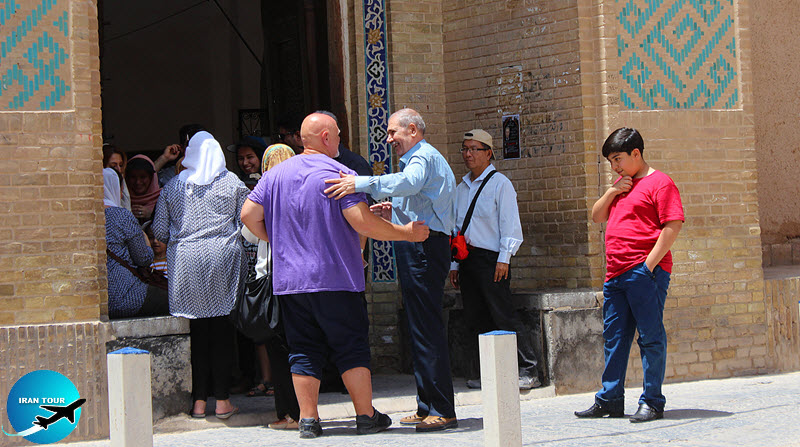 |
If you are visiting the family after a journey, remember that it is always expected that someone returning from a trip brings some presents for friends and family.
The level of Iranian respect for the guests reflects in his offered place of sitting, type of food, and drinks. An Important guest is always seated at the head of a room or a table and is the first to be served food and drink. Social etiquette deems refusal of these honors and pressing them on to another person.
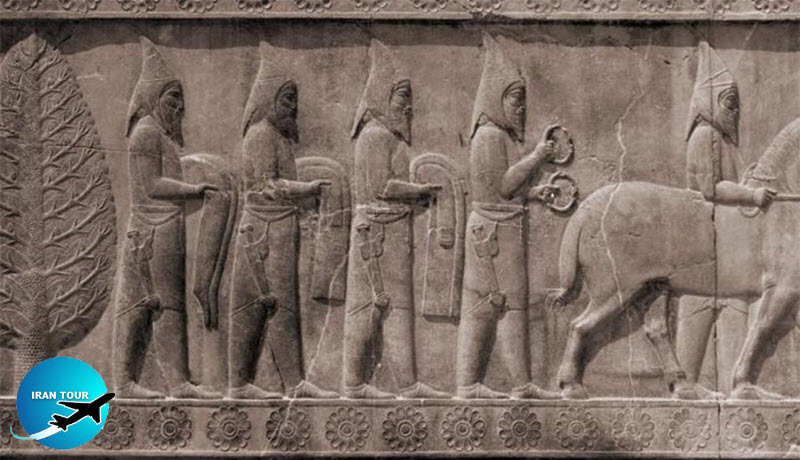 |
| The Row of donors in the Achaemenid court |
If you visit a Persian home or Interact with someone and like any of their possessions be very careful about praising any possession. Should you praise It, the owner will most likely offer it to you as a present almost at once. Persian children are charming and well behaved however praising a child is largely regarded as a sign of envy, casting an evil eye." Should you praise a child be sure to use the term, Masha Allah, literally, What God wills." Physical contact In greeting people is commonly observed and Iranians can be quite physically intimate with same-sex friends, even in public. Do not be alarmed as such contact does not have any erotic undertone.
If you visit an Iranian home or interact with them and like any of their possessions, be very careful when adoring them. If you praise It much, the owner will most likely offer it to you as a present. The children are charming and well-behaved, however, too much praising from a child is largely considered as a sign of envy, and casting an evil eye. Should you praise a child be sure to use the word of Masha Allah, What God wills. Physical contact in greeting is commonly observed and Iranians can be quite physically intimate with friends of the same sex, even in public places. Do not be alarmed as such contact does not have any erotic undertone.
A warm and deep hug with three kisses is a normal model for family members and even the slightest physical contact with non-family members of the opposite sex is prohibited. Unless they are very young children. Should you encounter a downward gaze on meeting someone. Do not be upset because it is a sign of respect not a sign of disinterest. Staring at a person at a party is a sign of interest and causes some problems. But eye contact with a friend is a sign of mutual love and intimacy.
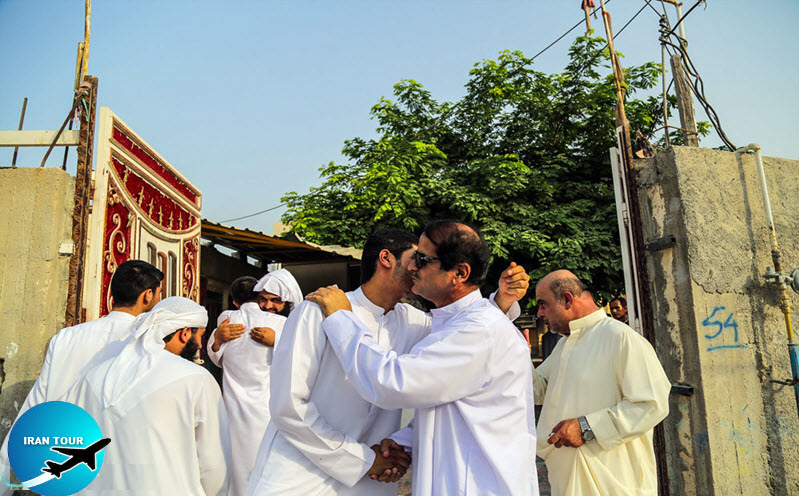 |
If you are wondering about how you should greet people. The younger people should greet the older ones and persons with lower status must greet others above them first. The universal Islamic salaam or the extended salaam Aleikum means Peace to be upon you and the universal phrase for leave-taking is Khoda Hafez - May God protects you' should be used by you.
-The family and its importance
The family is the most important foundation of Iran's social structure and is much more private than other societies and cultures. Iranians introduce themselves with two distinct identities: Zaher which means public and 'Batin (private). The Female of the family must be protected from the outer impression, so questions about an Iranian wife and female relatives are considered inappropriate.
-Social relationships
It is the inner circle that forms the foundation of an individual's social and business networks, as the duties of the inner circle members extend to offering advice, helping other members find employment, and cutting red tape.
 |
-The Art of "Taarof"
Persian culture is characterized by Taarof (the art of excessive politeness and humility). The art of Taarof has its roots in the Persian tradition of treating your guests better than your own family and the Insatiable desire to be the best hosts. Taarof is best described as a play of words between the offeror and the recipient until one of them agrees. It is an Iranian cultural phenomenon in which you refuse something that is offered to you more out of politeness and do not want to come across as greedy rather than accepting something even though you want it. As the offerer, you might be offering to give something that might be too expensive to give away just like that or for free For instance If you are invited to a Persian home for a meal, the food Is delicious and you have eaten enough yet wouldn't mind eating some more, Taarof demands that you say no even if your host offers you a second helping. The factors at play here are your host wanting to be gracious and ensuring you eat more than your fill and you want to eat some more without appearing to be a glutton. In such a case you may refuse once but accept when the offer is made a third time so that you don't appear greedy. Taarof is a big part of the buying and selling that goes on in stores across Iran, particularly in small shops selling low-priced items. When you inquire about the price of a certain product, the shopkeeper will tell you 'il is nothing much Instead of quoting a ligature. Taarof demands that he say this because while the shopkeeper wants you to buy the goods on offer they must tell you that you are worthy of much more. That is the reason why shopkeepers may say the price Is nothing. Taarof can be quite Irritating and frustrating at times, more so if you are not familiar with it. Most people are known to ask their quests not to do Taarof (Taarof Nakonid) when they refuse something. Taarof brings to life the dilemma of to be or not to be and can create sticky situations where hosts can end up feeling Insulted if a guest refuses to eat some more leaving the cook mortally wounded. That Is precisely why it is an art with Taarof hal one should know where to draw the line and rele.
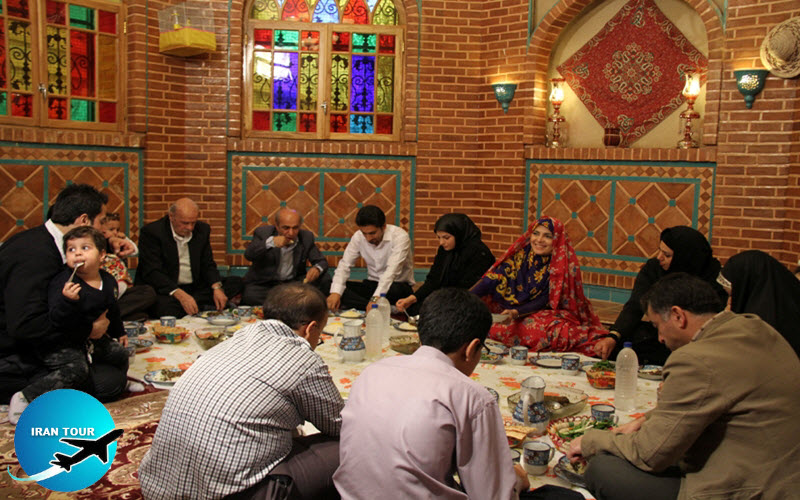 |
Dining Etiquette
If Invited to an Iranian person's house, here are a few pointers to keep in mind.
•Check to see if the host is wearing shoes. If not, remove yours at the door.
•Dress conservatively, check to see if your spouse Is Included in the invitation, as conservative Iranians do not entertain mixed-sex groups.
•Try to arrive at the invited time. Punctuality is appreciated.
•Show respect for the elders by greeting them first.
•Check to see if your spouse is included in the invitation. Conservative Iraniansdonotentertainmixed sex groups
•accept any offer of food or drink, although first declining what is offered until your hosts' Insistence becomes greater while this behavior may be deemed annoying and antiquated by foreigners, Iranians are very sensitive to what others will think of them and so
This behavior has become an inherent part of their culture. Expect to be shown into the guests' room. It is usually lavishly furnished with European furniture.
•Shake everyone's hand is individual.
•Table manners: Iranians are rather formal. Although some meals in the home are served on the floor and without eating utensils, it does not indicate a lack of decorum. In more modern homes, meals are served on a dining table with place settings.
•Wait to be told where to sit.
•Eat only with the right hand.
•Try a bit of everything that is served.
•Meals are generally served family-style.
•Most tables are set with a spoon and fork only.
•There is often more food than you can eat. Partoflranian hospitality Istoshowerguests with abundance. Expect to be offered second and even third helpings. Initial refusals will be assumed to be polite gestures (taarof again!) and are not taken seriously.
•leave some food on your plate when you have finished eating.
•Restaurants generally have two sections - "Family where women and families dine and men only. Tips of between 10 and 15% are appreciated in hotel restaurants.
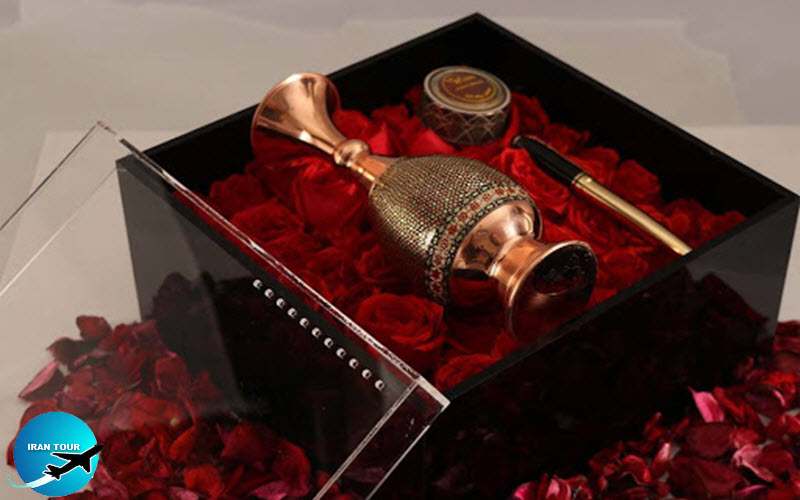 |
-Gift Giving Etiquette
Iranians will give gifts on various social occasions, such as turning from a trip or to mark the achievement of a major personal or business success. On birthdays sweets and cakes are brought to the office, but gifts are not expected. On No Ruz, the Iranian New Year, monetary gifts, new banknotes, or gold coins, are usually given to servants or other service providers. If invited to an Iranian house, one ought to bring flowers or pastries for the hosts. Two general pointers In gift-giving Include that gifts should be elegantly wrapped, most shops offer this service; and, when received, gifts are not usually opened, and in fact can be left on a table and not mentioned. Lastly, no matter what you have brought to be in accordance with taarof remember to apologize for the gift's total Inadequacy.
-Business Culture in Iran Generally
Iranian businessmen are warm, friendly, hospitable, and very formal. When Interacting with Iranians, one must pay attention to gestures, expressions, and socially acceptable behavior. Knowing some tips on social etiquette In Iran will improve your relationship with partners. To better understand Business Culture in Iran, It is wise to pay attention to some Iranian customs and acceptable social behavior.
-Business Culture in Iran
Visiting Important guests are always seated at the head of a room or a table and will be first-served, but social etiquette deems refusal of these honors and pressing them on to another person, but it is expected to be insisted and later it is accepted by the guest. So again, don't be fooled by their display of regret or share of receiving attention, IL Is expected!
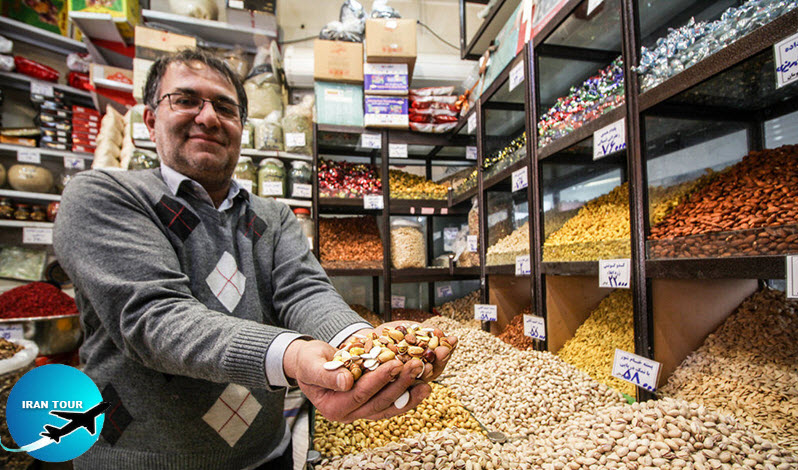 |
-Business Culture in Iran
Greetings In Iranian culture are very delicate. Younger people should greet older people and those of lower status must greet others above them first. So it is best if you always say greetings first, and don't use short greetings like 'Hi' or 'Hey, you should formally extend your hand and say 'Salam Alaikuri' or 'Dorood bar Shoma.' Physical contact in greeting people is commonly observed and Iranians can be quite physically Intimate with same-sex friends, even in public. However, in business attire, there are no hugs and kisses. Handshake of the opposite sex Is forbidden, so it is best to wait for the opposite sex to extend the hand, but it is always safer to put your hand on your chest as a sign of respect and nod your head.
Eye contact in Iran is another delicate matter. Should you encounter a downward gaze on meeting someone in Iran do not be offended as it Isa a sign of respect not a sign of disinterest. A man staring at a woman Is usually taken as a sign of Interest and will cause you trouble. So It is best to avoid direct eye contact, but a smile is always helpful in every situation to show that you mean no harm or disrespect!
-Business Culture in Iran: Complimenting
Be careful about compliments, Iranian men don't appreciate compliments made about their wives and daughters, especially, about beauty and age! When complimenting any of their possessions, the owner will most likely offer Il lo you as a present almost at once, however you should refuse It! Don't be fooled by their Insistence to take it as a gift, later they will regret giving it to you and ruin your relations. If you really want one and don't know where to gel one, ask them to provide you with one, and they will gladly buy and give you a new one as a gift, but giving you their own, usually Is a no-no! Praising and complimenting a child is largely regarded as a sign of envy, casting an evil eye, so you should use the term Masha' Allah, right after showing your feelings.
- Details
- Category: IRAN Blog